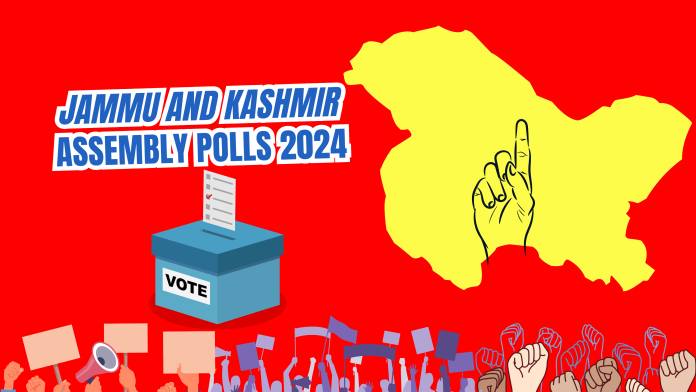JAMMU, Sept 7: All Political parties are trying to woo the SC voters as the reserved constituencies having the highest percentage of Scheduled Caste (SC) voters will play a ‘key factor’ in deciding the fate of the candidates of various political parties in forming the next Government in Jammu and Kashmir, political experts said.
Click Here To Join Daily Excelsior on WhatsApp And Get Latest News
Polling in Jammu and Kashmir is scheduled to be conducted in three phases on September 18, 25, and October 1 and the results will be declared on October 8.
As per the official data, seven Assembly constituencies are reserved for the Scheduled Caste (SC) candidates and nine for the Scheduled Tribe (ST) candidates across Jammu and Kashmir.
Political experts think that on seven reserved seats, voters will play a ‘key factor’ for SC candidates representing different political parties; seven reserved seats of Jammu, Samba, Kathua, and Udhampur districts have 32 to 42 percent of scheduled caste voters.
“The manifesto of the BJP released by the Union Home Minister Amit Shah in Jammu on Friday focussed on reservation in promotion for Scheduled Castes and Scheduled Tribes within Government services,” they said the BJP focussing on open seats, is eyeing victory from the reserved seats to form the next Government in Jammu and Kashmir.
The constituencies including Marh, Bishnah, Suchetgarh and Akhnoor in Jammu district, Ramnagar in Udhampur district, Kathua in Kathua district, and Ramgarh in Samba district are reserved for the SC candidates and all these constituencies have healthy percentage of voters from the community, experts said.
“Earlier, all these seats were open but after the delimitation, they were reserved and had made prominent leaders from the BJP and the Congress emerge victorious,” they said. Since these seats are reserved now the political parties are making effort to field suitable candidates capable of winning for their respective political parties.
“Some of the political parties are also fielding candidates from outside the constituencies to win the seat but such parties may face the anger of the people for ignoring their favorite leaders from the hometown constituencies,” they expressed.
As per the official data (2011 census), Marh Constituency has the highest 42.55 percent of SC Voters with a population of 45656 against a total 107288 voters.
Similarly, in Bishnah, the total voters are 141205 with 59241 from the SC community (41.95 percent), in Ramnagar, 43025 (36.73 percent) are from the SC community against total 117132 voters, in Suchetgarh, out of total 128368 voters, 47127 (36.71 percent) are from the SC community, in Akhnoor, out of total 127385 voters, 39860 (31.29 percent) are from the SC community, in Kathua, out of total 138382 voters, 43280 (31.28 percent) are from the SC community and in Ramgarh, 30890 (30.48 percent) voters are from the SC community against the total 101332 voters.
However, the Scheduled Tribe (ST) reserved seats including Rajouri, Gulabgrh, Budhal, Mendhar, Surankote, Thanamandi (Jammu Region), Gurez, Kokernag, Kangan (Kashmir Region) will also be the key players in forming the next government in Jammu and Kashmir.
These Assembly constituencies have a very minimal percentage of Scheduled Caste voters .
Jammu and Kashmir has 90 assembly constituencies, with 7 seats reserved for Scheduled Castes (SCs) and nine for Scheduled Tribes (STs).
There are 20 seats in Jammu province which have an SC population ranging from 19 to 26 percent and this substantial population can decide the fate of unreserved candidates in these constituencies and can help any political party in the formation of the next Government in Jammu and Kashmir.
In the previous Assembly elections, the People’s Democratic Party (PDP) won 28 seats, the Bharatiya Janata Party (BJP) secured 25, the Jammu and Kashmir National Conference (NC) won 15, and the Congress won 12.
Congress this time has allied with the National Conference to contest the polls.
(Agencies)


